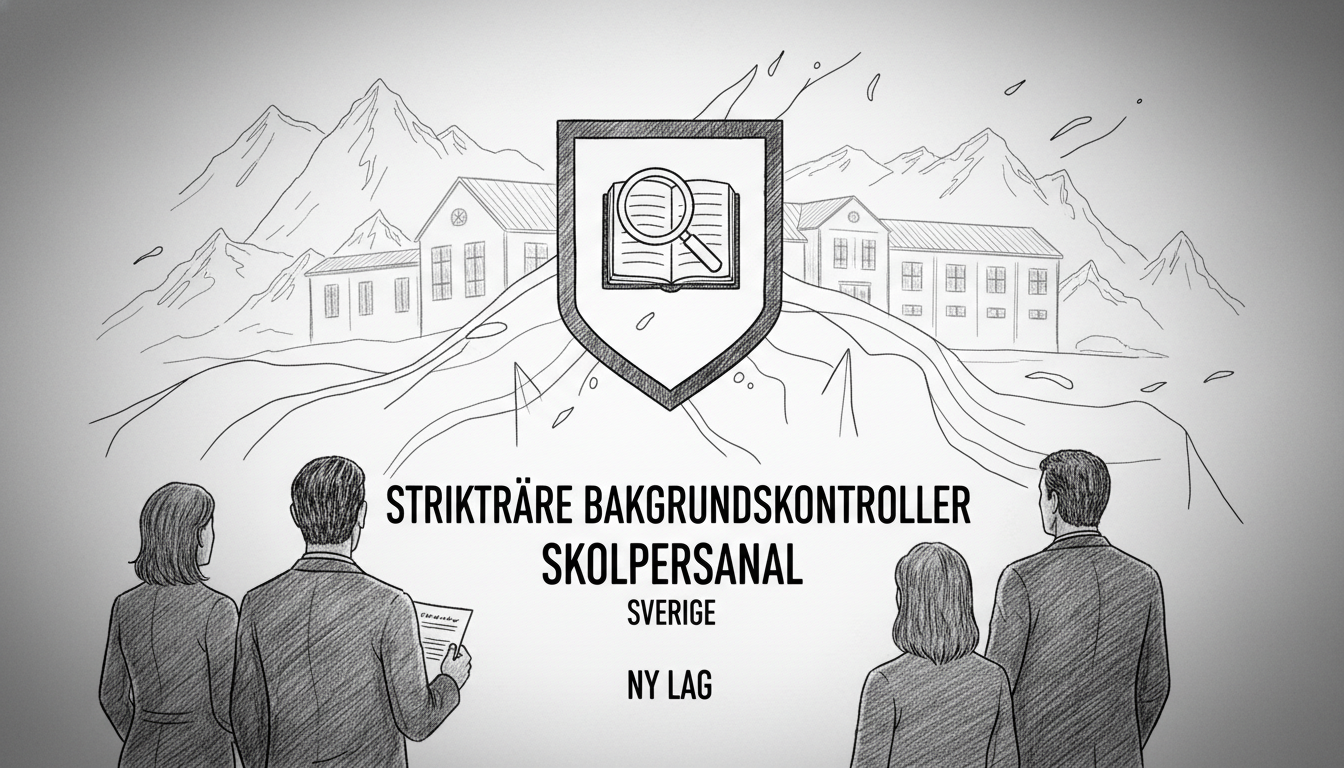The Swedish government has introduced new legislation to strengthen background checks for school personnel following disturbing revelations about a convicted preschool predator. Education Minister Simona Mohamsson confirmed the policy shift after investigations revealed systemic failures in staff vetting procedures. The proposed measures would expand mandatory criminal record checks and create centralized reporting systems across Swedish municipalities.
Recent court documents confirmed a man employed at ten preschools between 2008 and 2019 received a prison sentence in the United States for child pornography possession. Investigators discovered footage the man secretly recorded at a Lidingö preschool, including inappropriate scenes involving young children. Swedish authorities could not prosecute the filming incidents because the statute of limitations had expired when the evidence emerged.
Current Swedish law limits municipal background check capabilities for educational staff. A Lidingö municipality preschool received early warnings about the man's unprofessional conduct toward specific children and families in 2013. Staff reported concerns to the school principal, who issued a formal reprimand but took no further action. The principal later provided employment references describing the individual as a functional workforce member.
Värmdö municipality officials acknowledged their limited authority to conduct comprehensive background investigations. They expressed concerns about existing regulatory frameworks that permitted the convicted individual to transfer between multiple preschool positions despite prior warnings. One parent filed formal complaints with both school administration and police in 2015 about the man's inappropriate behavior, leading to his dismissal from one institution but not preventing subsequent employment elsewhere.
The Swedish Parliament will debate the proposed background check legislation during the third quarter. The bill represents the government's response to growing concerns about child safety protocols in educational settings. Policy analysts note the reforms could significantly alter hiring practices across Sweden's comprehensive preschool system.
Government districts near Rosenbad have intensified scrutiny of educational safety standards following these revelations. The Riksdag decisions on this matter will determine whether Sweden implements some of Europe's strictest school staff screening requirements. Previous parliamentary actions on child protection have typically received cross-party support, suggesting potential for rapid legislative progress.
This case exposes critical gaps in Sweden's otherwise robust child protection framework. The inability to prosecute expired offenses and transfer restriction systems between municipalities created dangerous loopholes. International observers will monitor how Swedish government policy addresses these challenges while maintaining the country's renowned educational accessibility.
Preschool safety reforms have emerged as a priority for Stockholm politics following these disturbing revelations. The government policy Sweden implements could establish new European standards for educational staff vetting procedures. Municipal authorities await detailed implementation guidelines from the education ministry regarding the proposed background check enhancements.

